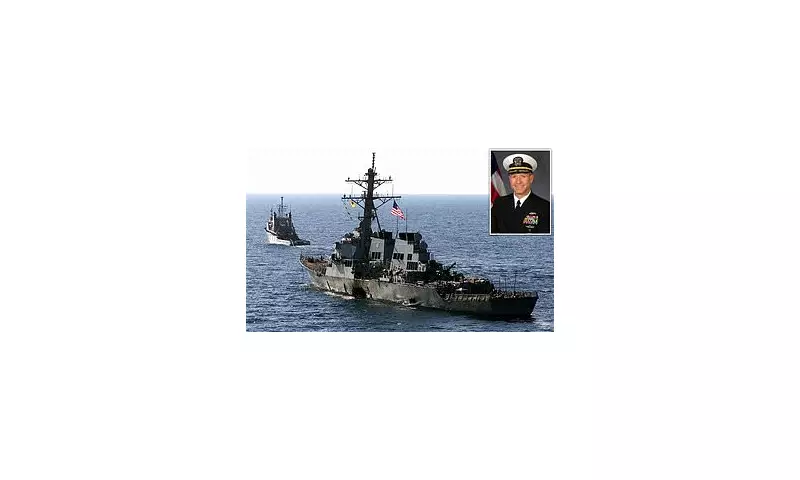
The morning of October 12, 2000, dawned hot and still in the Yemeni port of Aden. Aboard the USS Cole, a billion-dollar guided-missile destroyer, Commander Kirk Lippold was attending to paperwork during what should have been a routine refuelling stop.
The Day That Changed Everything
As the massive vessel took on 250,000 gallons of fuel, crew members who had spent weeks at sea broke for lunch. The peaceful scene was shattered at 11:18 am when a small boat suddenly veered toward the destroyer without warning.
A blinding white flash illuminated the harbour waters, followed by an explosion that nearly threw Commander Lippold from his seat. The USS Cole erupted in flames as suicide bombers detonated 1,000 pounds of explosives against its hull.
The blast tore a forty-foot hole in the ship's steel side. Fire rapidly spread through the galley area while fuel and seawater flooded the lower decks. Seventeen American sailors died instantly, with forty more wounded in the devastating attack.
'I knew immediately it was a terrorist attack,' Lippold later told the Daily Mail. 'The direction the ship was thrown told me everything I needed to know.'
From Warship to Watchdog
Nearly twenty-five years later, the retired commander has embarked on a new mission through his organisation Charities for Vets. He's now exposing what he describes as systemic failures in the billion-dollar veteran charity industry.
'Last year alone, over 1.6 billion dollars went to organisations we categorized as not recommended,' Lippold revealed. He clarified that this doesn't mean the money was entirely wasted, but rather that less than 75 percent reached the veterans who actually served.
His organisation uses a straightforward grading system: charities where 90 percent or more of donations go directly to veterans are 'highly recommended,' while those achieving 75 percent or more are 'recommended.' Anything below falls into the 'not recommended' category.
'We're not telling people who to give to,' Lippold explains. 'We're telling them: here are the numbers. Here's where your money really goes. Then it's your decision.'
A Lasting Legacy of Service
The connection between Lippold's past and present missions remains strong. Following extensive investigations, authorities determined that Al Qaeda orchestrated the USS Cole attack, with plotting allegedly masterminded by 9/11 architect Khalid Sheikh Mohammed.
The strike served as a grim prelude to the September 11 attacks that would claim 3,000 American lives less than a year later. Despite the devastation, the USS Cole did not sink, thanks to the heroic efforts of Lippold's crew who worked around the clock for 72 hours to save their ship.
Lippold's leadership philosophy during the crisis revealed his deep trust in his team. Recalling his decision to remain silent when he reached the control centre, he said: 'I made what I considered to be the smartest decision of my command tour. I kept my mouth shut.'
He trusted his crew to do what needed to be done without interference - a confidence that proved well-placed as they saved both the ship and each other.
The retired commander maintains strong bonds with his former crew members to this day. 'We're just a very tight-knit group,' he said. 'We stay in touch and make sure that if at any point somebody needs a little bit of help, we're there.'
Meanwhile, the USS Cole continues to serve with distinction. Last Christmas Eve, the vessel returned from deployment after shooting down 17 Houthi missiles and drones in the Red Sea and defending Israel from Iranian ballistic missiles.
Lippold's message to potential donors is clear: 'If people move their donations toward the efficient charities, everyone wins. Veterans get more help, charities are motivated to improve, and the public learns who's actually doing the work.'
As he continues his campaign for America's service members, Lippold remains mindful of the crew who stood beside him during that fateful morning in Aden. 'The true heroes that day were my crew,' he reflects. 'They saved that ship. They saved each other. And they set the example for everything I've tried to do since.'





